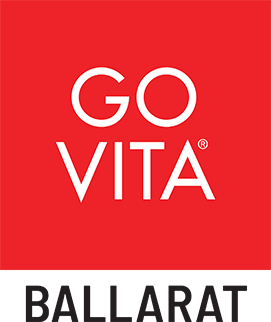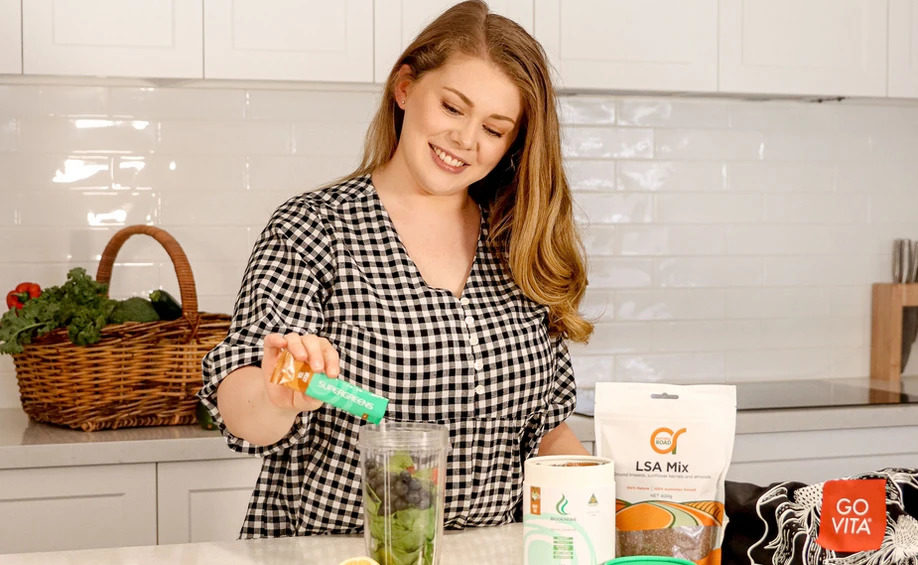The health benefits of collagen have been known for thousands of years. In fact, there are records from the 12th century of people drinking a broth made of calf hooves to help alleviate joint pain. Meanwhile, Asian cultures have been consuming collagen-rich meals for centuries to encourage a healthy complexion.
In the Western World, collagen sales – in food, beverage, and cosmetic products – have been steadily increasing since 2018. Google trends suggest that searches for collagen-related products and information have been increasing since 2016. And it’s not slowing down – Global Market Insights estimates that the collagen supplement market will hit $2 billion by 2030.
So, what is collagen? Go Vita Ballarat Naturopath, Jasmine Satchell explains that collagen is the most abundant protein in mammalian bodies. “Collagen is found in connective tissue, such as bones, ligaments, cartilage, tendons and skin,” she says.
Collagen in the body
The body is made up of seven different protein types: antibodies, contractile proteins, enzymes, hormonal proteins, storage proteins, transport proteins, and structural proteins.
Collagen is a structural protein and accounts for about 30% of the body’s protein.
Collagen as we age
As we get older, the fibroblasts that produce and maintain collagen in the body don’t work as effectively. This means we don’t produce as much collagen. As a result, our skin starts to sag, or becomes ‘papery,’ and wrinkles develop. It also means that we are more prone to joint pain or stiffness, and muscle weakness.
“Taking collagen is beneficial for anyone who would like to address gut health, improve the strength and vitality of their skin, or who may need to improve the integrity of bones and ligaments,” Jasmine explains.
“I often recommend a collagen supplement or collagen-rich foods to post-operative clients or clients that are suffering from osteoporosis. But it is also beneficial to take collagen supplements after exercise (to help with muscle repair) and to help repair damaged or weakened skin.”

The best natural sources
Diet is always the primary place to get the nutrients your body needs.
Some of the best sources of collagen are:
- Homemade bone broth: made by simmering animal bones in water
- Chicken
- Beef
- Seafood, with the skin (however, most of the collagen is found in the head, scales and eyeballs of fish)
Complimentary foods to include
Some foods don’t contain collagen but are high in vitamin C, zinc, copper, or chlorophyll, and other nutrients that help the body produce more collagen.
These include:
- Citrus fruits: like oranges, lemons, lime and grapefruit.
- Berries: strawberries, blueberries, raspberries and blackberries are all high in vitamin C.
- Tropical fruits: mango, kiwi and pineapple.
- Eggs: particularly the egg whites. Egg whites contain proline, which is an amino acid that helps collagen production.
- Garlic: can help to prevent the breakdown of collagen.
- Beans and legumes: kidney beans, chickpeas.
- Red capsicums: high in vitamin C
- Leafy greens
- Oysters
Collagen supplements
A collagen supplement can be an easy and efficient way to increase your collagen intake and can come in the form of powder, liquid, capsules and bars.
Jasmine says she personally prefers to recommend powders to her clients, as “it is easier for the body to absorb.”
Collagen powders are generally tasteless (unless flavoured) and can be added to hot or cold liquids, such as smoothies and soups.
Collagen bars are also a popular and convenient way to consume collagen when you are time-poor or don’t have the facilities to mix up a collagen ‘shake’.

Bovine vs marine collagen
When looking for a collagen supplement, you will be able to choose from either bovine collagen or marine collagen. Bovine collagen is made from hydrolyzed cowhides. Similarly, marine collagen is made by hydrolyzing fish skin and scales. Both are beneficial and are easily absorbed by the body. However, according to Natural Force they are different types of collagen, and therefore can be used for different purposes.
Bovine collagen contains type I & III collagen, which is most suitable for healthy joints, repair and recovery after exercise, and gut health. On the other hand, marine collagen is mostly type I collagen, which is useful for skin, hair and nails. The smaller molecules of marine collagen also make it slightly more bioavailable for the body.
What about vegan collagen?
Collagen comes from animal products, so vegan collagen is not technically ‘collagen’. However, vegan collagen alternatives are made from ingredients that have similar amino acid profiles to bovine and marine collagen. For instance, pea and sunflower protein.
“Vegan Collagen supplements are made up of a combination of ingredients that increase collagen production in your body,” Jasmine says.
“Some examples include vitamin C, zinc and copper. Often vegan collagen powders will also contain ingredients such as spinach, kale broccoli, brussel sprouts, antioxidant herbs and fruit extracts that help with the body’s natural collagen production processes.”
Check out our range of plant-based collagen supplements here.
Visit us at Go Vita Ballarat to see our full range of collagen supplements and have a chat with our friendly staff about which collagen is right for you.






